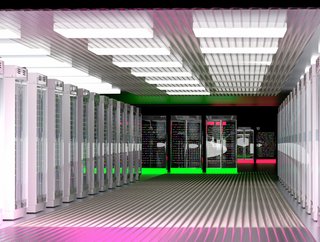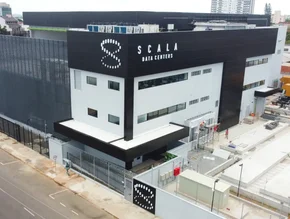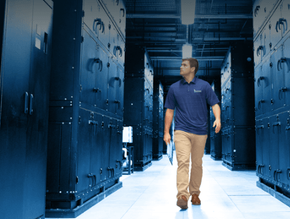The GenAI Revolution and Its Impact on the Data Centre

AI continues to represent a new era of disruption for the data centre industry. Industry leaders are having to consider how they can design, or re-design, their facilities to suit the ‘AI era’ and keep up with enterprise demand.
Generative AI (GenAI) in particular has gained significant attention in recent years due to its ability to create and transform new and original content. However, this has undoubtedly increased demand for data centre capacity and power, which will continue to impact the market moving further into 2024 and beyond.
With this in mind, Data Centre Magazine hears from some of the industry experts considering how GenAI could continue to impact the sector in the near future.
GenAI use in the data centre: A game changer?
It is no secret that AI continues to revolutionise data centre operations. As companies are confronted with rising demands, which will only increase again in 2024, AI has been cited by industry leaders as a way to improve efficiencies and lower costs for businesses.
According to Sascha Giese, Tech Evangelist at SolarWinds, GenAI can simplify the process of interacting with infrastructure and make it more accessible for IT professionals that may not know multiple programming languages.
“That’s especially true when it’s tailored for voice commands,” he says. “GenAI models can be trained to ‘translate’ spoken statements and enter commands into the command-line interface of devices or orchestrators. This is particularly effective in vendor-agnostic scenarios.”
When considering additional benefits of GenAI, Karsten Winther, EMEA President at Vertiv, says: “The transformative power of AI extends beyond these benefits, particularly in the realm of cognitive infrastructure. By leveraging AI, data centre operators can implement predictive maintenance strategies that go beyond traditional approaches, helping deliver optimal performance, minimising risks and reducing downtime.”
Another significant attraction of AI technology is that it holds potential to reduce the environmental impact of data centres. With the industry looking to reduce its footprint and enact its ESG strategies, AI could offer new solutions. Over the next year, businesses are keen to consider how mass AI power can coexist with sustainability.
Winther says that smart energy systems could provide opportunities to stabilise power grids and optimise energy consumption. He adds: “AI can be a game changer in ensuring operational continuity and reducing carbon footprints in data centres. By processing and analysing real-time data, AI enables several digital services that further empower traditional preventive and reactive services.
“These include monitoring services, advanced incident management and condition-based maintenance. AI-powered energy conservation tools optimise equipment calibration, resulting in operational savings and reduced energy costs.”
In terms of addressing the evolving energy landscape, Winther states: “The integration of AI in smart energy systems is particularly interesting. AI algorithms are able to analyse real-time data, enhancing grid management, demand response and efficient resource use. By continuously monitoring energy demand and supply, AI can enhance the distribution of renewable energy, maximising its effective use.
“Moreover, AI algorithms can predict changes in energy patterns, enabling proactive measures to maintain grid stability and reliability.”
Challenges and considerations: “Not a quick fix”
It is important to understand that AI technologies are a tool, not an overall solution.
SolarWinds’ Sascha Giese says: “Given its critical role, training GenAI in a data centre environment is a huge challenge. The margin for error is very slim, with any hiccup having huge knock-on effects for the organisation — including potential blackouts. As such, training AI models involves thorough planning and careful deployment over an extended period of time.”
He also describes GenAI in a data centre as “an ongoing process that should follow DevOps methodologies.”
With these technologies holding the power and potential to digitally transform data centres, inevitably this comes with its risks. Given that the data centre holds a pivotal role in storing, processing and managing huge swathes of critical data and sensitive information, AI could be used negatively by cyber criminals to infiltrate and extract data.
Cyberattacks are continually rising and becoming more sophisticated and, unfortunately, businesses are not yet equipped enough to handle the strain. Whilst GenAI could be used negatively in this way, it can also be used as a tool for data centres to improve their digital defences.
As AI systems continue to evolve and transform, data centre operators must also be mindful of the ethical risks. If these warnings are ignored, customers and partners could be catastrophically impacted. To avoid these, industry professionals would do well to harness GenAI in a way that eliminates bias and also encourages utmost transparency.
Looking ahead: The future of implementing GenAI
Giese describes the future of GenAI within the data centre as “unlocking a new level of efficiency.”
He says: “This shift will alleviate some burden on IT professionals who usually find themselves overwhelmed with responsibilities related to data retrieval and presentation. Gone are the days of IT professionals writing complex queries or manually creating reports. Now, the machines can do the heavy lifting.”
Similarly, Winther explains that AI holds the potential to empower data centre operators to make informed decisions, reduce costs and minimise their environmental footprint.
“The development of AI algorithms specifically designed for cognitive infrastructure will further enhance the capabilities of smart energy systems. These algorithms will enable data centres and other industries to make intelligent decisions in real-time, optimising energy usage, predicting equipment failures and proactively managing power consumption.
“By leveraging AI's ability to analyse vast amounts of data and learn from patterns and trends, data centres can continuously improve their energy efficiency and reduce their environmental impact.”
Winther also cites the value of these new technologies to unlock renewable energy solutions. He says: “AI can help optimise the integration of intermittent renewable sources like solar and wind power into the energy grid. By analysing weather patterns, energy demand and supply, AI algorithms can determine the most efficient and effective ways to use renewable energy resources.
“This integration will not only reduce reliance on fossil fuels but also contribute to the stability and resilience of a more sustainable power grid.”
As GenAI, and AI more generally, continues to evolve over the next twelve months, it is clear that the data centre will continue to innovate and push boundaries. From energy, to security, to operations, AI advancements could hold the key to creating a digitally resilient and sustainable industry that is well-equipped to handle rising demand.
******
Make sure you check out the latest edition of Data Centre Magazine and also sign up to our global conference series - Tech & AI LIVE 2024
******
Data Centre Magazine is a BizClik brand







